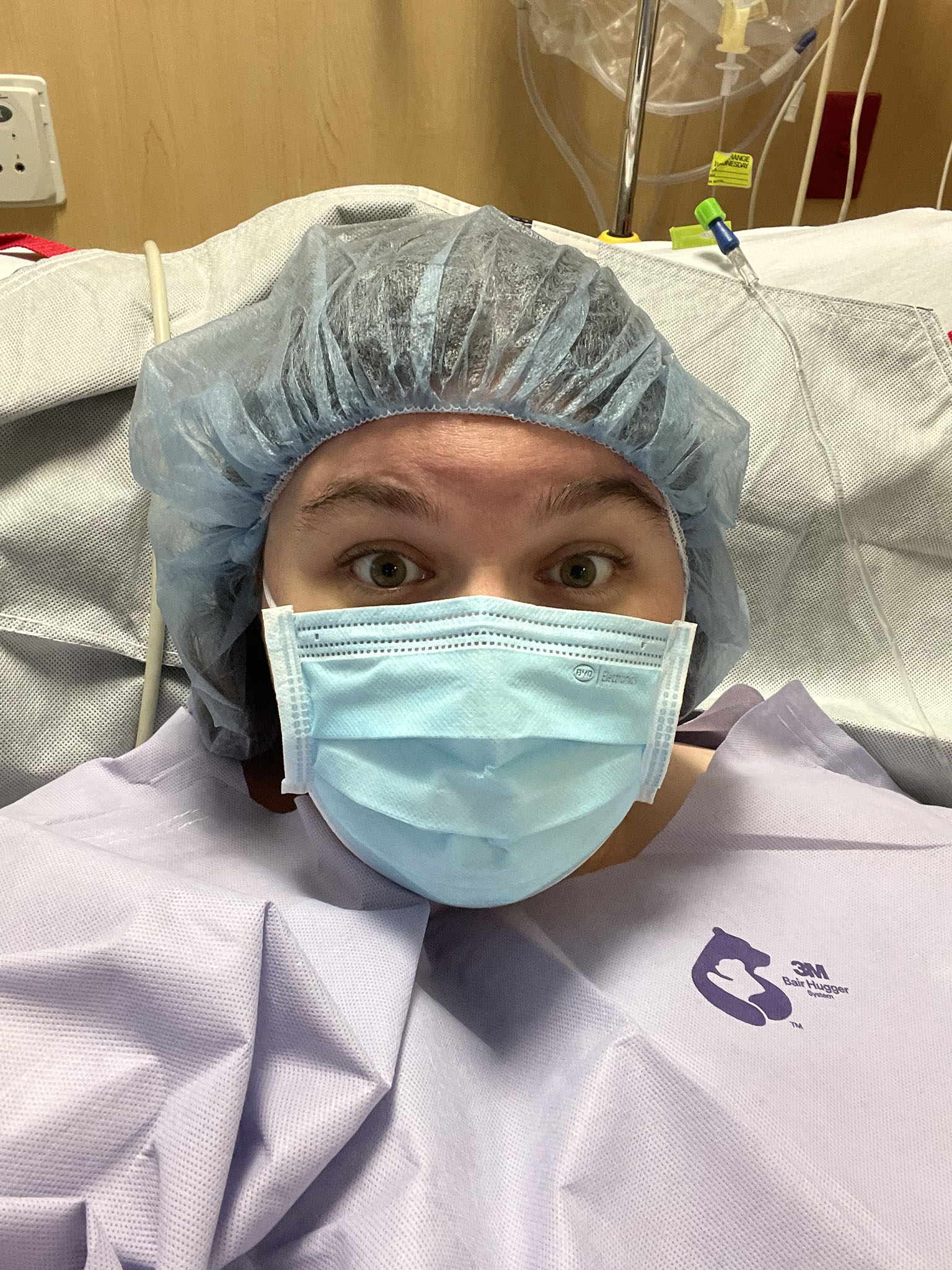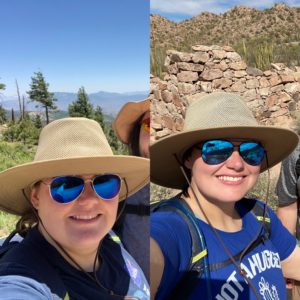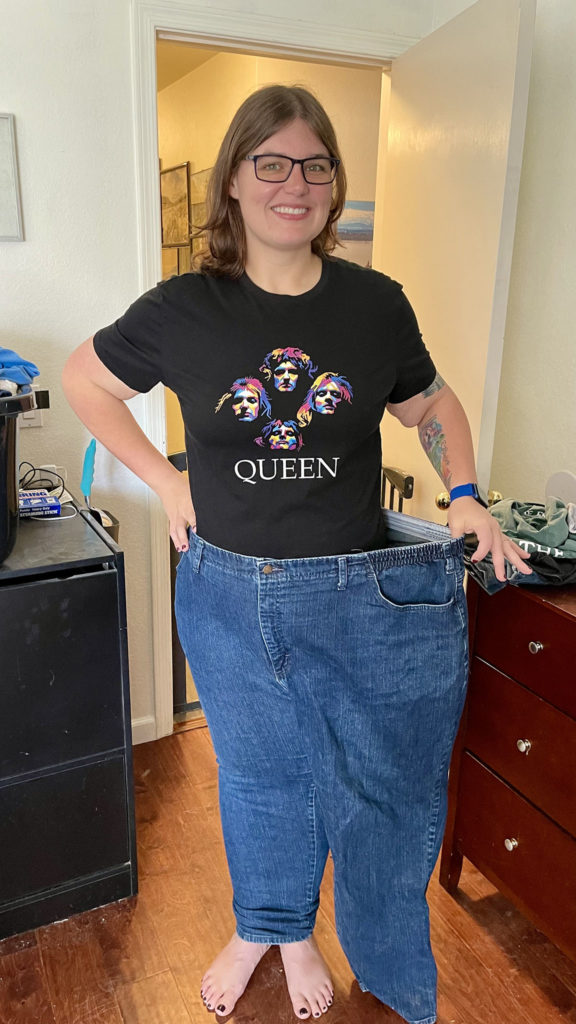Hello... is this thing on?
The Road to Healthy
One year into my journey to lose nearly half my body weight.

Hello again! It’s April already — crazy, right? I do have a lot more travels to catch you up on (which have, thankfully, slowed down for a few weeks), but today I wanted to share a more personal life update, because it’s a big day for me.
Like 42% of Americans1, I’ve always struggled with my weight. That’s not an easy thing to talk about, since there’s still such a stigma in our society. In fact, while other forms of discrimination have remained stable, reports of weight discrimination rose 66% between 1996 and 20062. This is especially troublesome in healthcare — a 2016 study found that 52% of women have seen their weight as a barrier to receiving proper treatment3. And I can attest to that: I was tested for hypothyroidism back in 2011 and was told that my numbers were off, but that they would improve with weight loss and exercise (a tall order, considering the chief symptoms of hypothyroidism are fatigue and weight gain). Fast-forward to 2020, when my new doctor diagnosed me and put me on medication after my test returned the exact same result as it did 10 years prior. Big surprise, the medication made me feel a lot better, no weight loss required.
The story we tend to hear is that overweight people are lazy, that they eat crap, that they don’t exercise, that with just a little bit of discipline and willpower they could lose all of that extra weight and get in shape. But science has shown again and again that it’s not that simple: people with obesity have a less than one percent chance of achieving a normal BMI through diet and exercise alone4! At my age and weight the chances were only 0.16%. Yikes. The reality of it is that overweight people typically aren’t all that lazy. We’re the ones constantly trying new diets, new workout regimens, even supplements and medications. I joined Weight Watchers in 7th grade. Believe me, I’ve tried it all.
Obesity, which is officially classified as a disease by the CDC, is much more related to your genetics and hormones than it is to your activity level and diet. Each one of our bodies has a pre-determined metabolic set point that determines the “ideal” weight that your genes think you should be5. For some people that’s 130 lbs, for others it might be 250, and your body has taken it upon itself to make sure you stay at that weight. That’s why dieting doesn’t work: once you lose about 50 lbs or so from that set point, your body panics and holds onto its stored fat for dear life in an attempt to get you back up. It’s a survival mechanism to keep you from starving to death.
But it’s not a total lost cause.
One year ago today I checked into Tucson Medical Center, bright and early around 4:30 am, to have a Roux-En-Y Gastric Bypass. This is a surgery that involves making a small pouch from the stomach and connecting it directly to the small intestine, bypassing the majority of the stomach.
The biggest reason that I wanted to write this article is to do my part to reduce the stigma, both of obesity and of weight loss surgery. It’s not “the easy way out”, and the goal isn’t just to make your stomach smaller so that you eat less — it’s actually a pretty phenomenal piece of medical science that hacks your hormones to address the genetic factors of obesity at their source. By disconnecting the part of the stomach that creates the “hunger hormone”, it significantly lowers your metabolic set point. Obesity is a disease, and gastric bypass surgery is the most effective treatment for that disease6. It’s no more “taking the easy way out” than it is for diabetics to take insulin, or for people with pneumonia to take antibiotics.
And I have worked hard. I typically think it’s cheesy to use the word “journey”, but the last year and a half really has been one. Before I even entered the operating room I went through eight months of tests and preparations to get my mind and body ready for this drastic change. I spent the week before surgery on an awful liquid protein shake diet to shrink my liver so that the surgeon could perform the operation. I was evaluated by a psychologist, a cardiologist, and a nutritionist, in addition to monthly pre-operative appointments. In fact, the biggest reason for the program is to make sure that you really have tried as hard as you can to lose the weight with diet and exercise and that this is your only option. And this was absolutely my only option.



After surgery I spent the next two months learning how to eat again. Starting from only water, broth, and protein shakes, adding in yogurt and cottage cheese, and finally trying solid foods after a few weeks. For six months or so I couldn’t eat more than about half a cup of food. I didn’t eat sugar at all until I had three bites of cake at my brother’s wedding in June.
But the thing is, this surgery is only a tool, not a cure. I (mostly) eat good, healthy food, and I exercise every day: I have a 295 day exercise streak with my Apple Watch (closing all three activity rings, for my fellow Apple Watch fans who know what that means). I even did a 30 minute strength workout the morning before having gallbladder surgery in December, so you might say I’m pretty dedicated.
I have lost 162.3 lbs since my high point in September of 2020. And, man, does it feel good.


This surgery has literally changed my life (not to mention, extended it significantly). I have always wanted to be active and do hard things, but there are just some things that have never been physically possible. A couple weeks ago I hiked a few miles into the Grand Canyon and back up: now imagine doing that while carrying a 160 lb adult on your shoulders the the whole way!
I’m participating in the 52 Hike Challenge and hiking at least 3 miles every weekend. I’m running 5Ks. I’m taking a Taekwon-Do class — just earned my green belt! I am doing all of the things that I have always wanted to do.



I definitely want to give a shout out and a big thank you to Dr. Matthew Weiner for giving me this amazing tool. And for more resources about weight loss, both surgical and nonsurgical, I recommend checking out his website. I know a few people that have had great success with his nonsurgical program, which helps lower your set point in other ways.
If this surgery is something you’re thinking about, please feel free to reach out to me. I’m happy to answer any questions you might have and talk in more detail about my experience. And here are two books I recommend if it’s something you’re considering: How Weight Loss Surgery Really Works: And How to Make it Work for You and Weight Loss Surgery for Dummies
Having the gastric bypass is one of the best decisions I’ve ever made, I have no regrets whatsoever.

1 “Adult Obesity Facts” https://www.cdc.gov/obesity/data/adult.html Retrieved 19 Apr 2022.
2 Diedrichs and Puhl (2016), “Weight Bias: Prejudice and Discrimination toward Overweight and Obese People” The Cambridge Handbook of the Psychology of Prejudice, 392–412.
3 “What to know about obesity discrimination in healthcare” https://www.medicalnewstoday.com/articles/obesity-discrimination-in-healthcare Retrieved 19 April 2022.
4 Fildes et. al. (2015), “Probability of an Obese Person Attaining Normal Body Weight: Cohort Study Using Electronic Health Records” American Journal of Public Health 105, no. 9, e54-e59.
5 Weiner, How Weight Loss Surgery Really Works: And How to Make it Work for You, 2019.
6 “Gastric bypass surgery is best for weight loss for severe obesity” https://www.kpwashingtonresearch.org/news-and-events/recent-news/news-2018/gastric-bypass-surgery-best-weight-loss-severe-obesity Retrieved 19 Apr 2022.